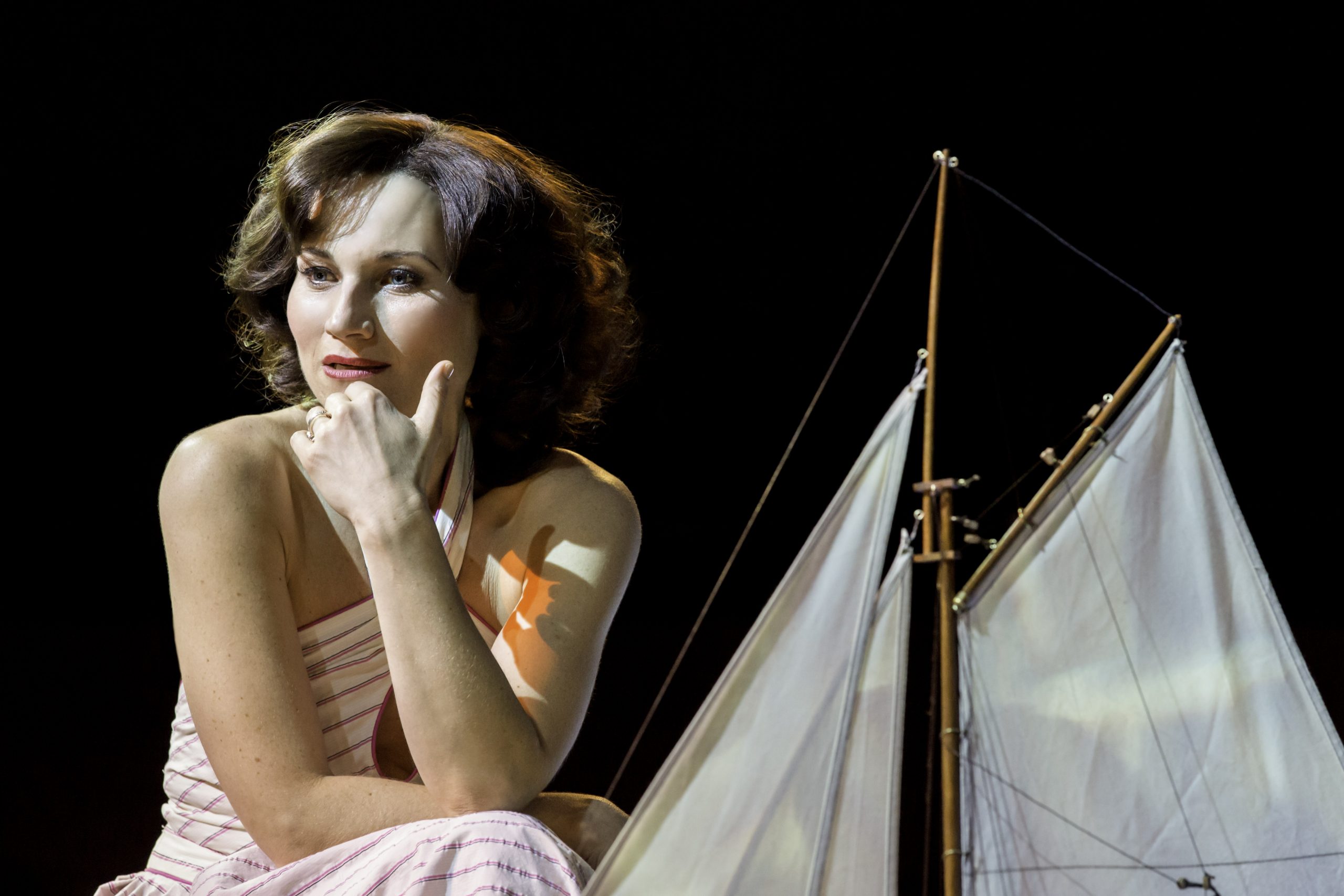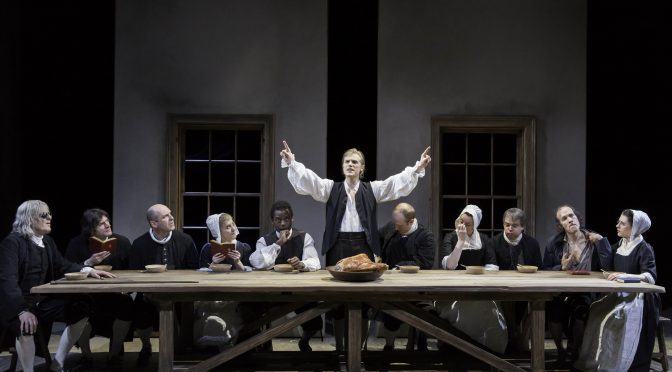Here’s a bold claim: Maria Friedman’s production of High Society has more laughs than the much loved film it’s based on. More than an amusing trip down memory lane, the show is laugh out loud funny, making the most of Cole Porter’s hit-crammed score and the humour of Arthur Kopit’s book. Updating the original 1930s setting to match the movie’s 1956 date injects a rock and roll feel, making the piece energised and a whole lot sexier.
Admittedly there’s a somewhat slow start. The sound could be bolder and some characters take time to establish themselves. The initial preamble to the wedding of wealthy socialite Tracy Lord and her arriviste fiancé George Kittredge lacks tension, despite her ex-husband CK Dexter-Haven being around. It feels like we’re being served a good prosecco rather than the champagne that plays such a big part in the show.
But by the time I Love Paris is sung, by Tracy and her feisty young sister Dinah, to bemuse two gate-crashing journalists, we’re onto the real thing and laughing a lot. And after the interval the use of the Old Vic’s current in-the-round format is embraced. When the cast sing What A Swell Party, we really feel part of it – it’s a tremendous scene that makes you glad you’ve been invited. The finale also uses the space cleverly as Tracy announces that the wedding is off to the audience, who at this point double as the congregation.
Of course, we’re all happy Tracy ends up with the right man. Rupert Young makes a suitably charismatic CK, while it’s best not to think too much about the fate of the unfortunate George. Dinah and the rogue reporters, played superbly by Ellie Bamber, Jamie Parker and Annabel Scholey, are on our side to allay complicity in the snobbery.
Amongst such a talented cast it’s all the more remarkable that Kate Fleetwood’s Tracy stands out so much. Her sexy voice and stunning comic skills mean you daren’t take your eyes off her. And she looks fantastic in Tom Pye’s glamorous costume designs. I’m not classy enough myself to know the best brand of champagne, but whatever it is, it should serve as a metaphor for Fleetwood’s performance. And she deserves a jeroboam of the stuff.
Until 22 August 2015
Photo by Johan Persson


